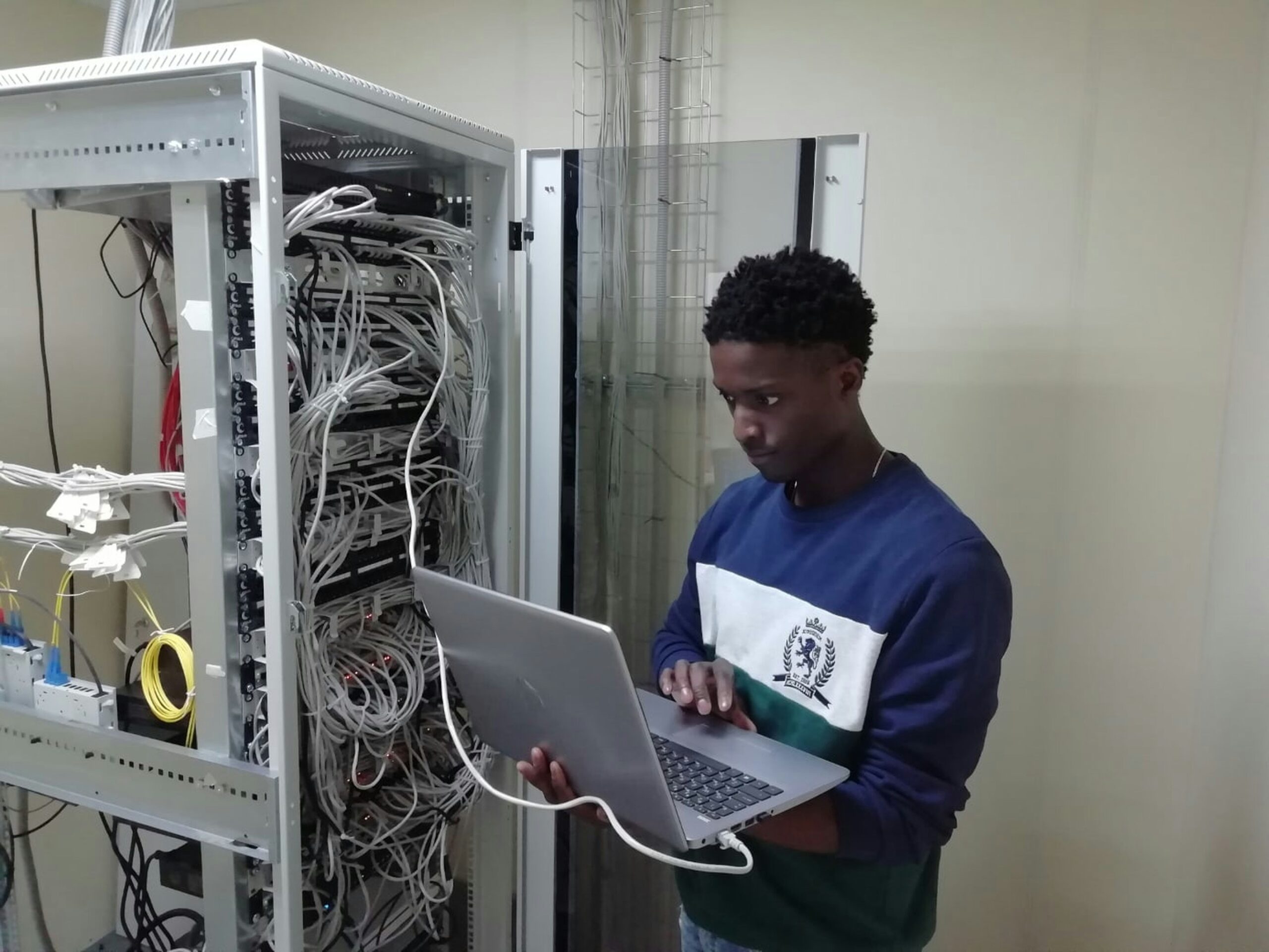NOTE: This will only be offered in English, as the network industry uses so much English jargon that it would not make sense to attempt a translation.
Introduction
We are developing various networking training programs to complement our cybersecurity training. The internet has become an integral part of everyday life; consequently, networking is at the core of all cybersecurity aspects, so it is crucial to have a deep understanding of how networking works to be truly effective in any technical cybersecurity role. Most technical roles would also greatly benefit from a solid understanding of how networking works. Starting in Q4 2025, we will offer in-person training for individuals interested in learning about networking. These are also great for aspiring network engineers. We will offer these in various locations around the world, starting with Europe and North America.
Our instructor has over 20 years of experience designing, operating, and managing large-scale networks for companies such as Microsoft and T-Mobile US, utilizing Cisco and Juniper equipment.
Each class will be hands-on and accompanied by a detailed lab workbook and a student handbook. The instructor will dedicate at least half of the class time to hands-on exercises and the other half to lectures and discussions. Each student will have their own gear to work on each lab exercise. Depending on the class and the topic, students may need to work together to connect their equipment to meet the exercise objective. We will be using a combination of Raspberry Pi and MikroTik gear for the lab exercises.
We will include a certificate of attendance for all classes, which participants can access online. You can download, print, and share the certificate on LinkedIn and other social media platforms. We are exploring the possibility of offering testing to assess the students’ learning during the class; however, we are still evaluating the feasibility of this approach.
All full-day classes will provide lunch as part of the tuition, as well as various swag. We will invite all students to a Discord server where they can chat with their instructor, classmates, and students from other sessions both during class and after.
If you have any questions, please don’t hesitate to contact us; we’re here to help. Stay tuned for schedule announcements. We’d be happy to let you know once the schedule is ready sometime this fall. All you have to do is get in touch and request to be added to that list.
Continue reading the syllabus for each network training class.
Network Training Class Overview
Here is a breakdown of what each class will cover.
Introduction to Networking
AKA Basic networking, or How does this internet thing work

This Network Training class is designed for individuals with little to no prior knowledge of how the Internet, as well as networking in general, works. Topics will include:
- What is a URL, and how is it composed
- What happens when you open a browser and type in a URL? How does the browser find the information you want and display it?
- What is an IP address, and how does it work? This includes discussions on subnets, subnet masks, and other related topics.
- What are ports, and how do they work
- Introduction to TCP/IP, including UDP and various protocols
- 7-layer OSI model
- Connecting to devices and transferring files.
- Introduction to Serial Connections, SSH, SFTP, SCP, and Insecure Obsolete Counterparts (Telnet, FTP, TFTP, etc)
- Tools used for this: Command Terminal, SecureCRT, PuTTY, Termius, SecureFX, WinSCP, Cyberduck, FileZilla
- What is DNS, and how does it work? This includes a lab exercise on setting up and configuring a DNS environment using Debian Linux servers, which provides a primer on working with Linux.
- What is a network tunnel or a VPN, what is it used for, what does it do, and what doesn’t it do?
Associate Network Engineer
This networking training class is designed for individuals with a basic understanding of networking, TCP/IP, subnetting, and related concepts who wish to learn the fundamentals of network engineering. There will be lab exercises for every topic. Topics will include:
- Working with the lab equipment
- Dynamic Host Configuration Protocol (DHCP) vs static addressing
- Bootstrap Protocol PXE/BOOTP
- Address Resolution Protocol (ARP), ARP table, etc.
- Hub, switch, routers, and firewalls
- Concept of bridging vs routing
- Routing table, RIB, FIB, etc.
- Static Routes, default routes, and dynamic routes
- Wireless Networking concepts
- Firewall and NAT Principles
- Tunnel and VPN basics
- Quality of Service basics (QoS)
- Monitoring and troubleshooting, including packet analysis (tcpdump and Wireshark), ping, traceroute, etc.
Network Engineer Professional
This Network Training class is designed for individuals who have a solid understanding of all the topics covered in the Associate and Introduction classes. Lab exercises will include constructing a large network of all the lab equipment with dynamic routing protocols. Students will also set up Syslog and RADIUS servers.
- Syslog: Logging services and configuration.
- User Management and Authentication
- Route selection
- Equal Cost Multi-Path Routing (ECMP)
- VPN Details
- VLAN and QinQ
- OSPF
- LSA Types
- OSPF network structure, areas, and router types
- Neighbors, states, roles, and elections.
Network Engineer Expert
This is a master level class designed for individuals who have already completed the lower-level courses. We’ll explore the details of the following complex topics. For exercises, we’ll set up a complex network with multiple autonomous systems that all communicate dynamically via BGP. Then, we’ll turn that into an MPLS network, exploring all its features.
- Border Gateway Protocol (BGP), both internal and external, path selection, etc.
- Multi-Protocol Label Switching (MPLS), Label Distribution Protocol (LDP), VPLS, CSPF, RSVP, and more
- Quality of Service (QoS) Details

